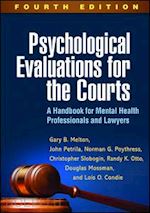Gary B. Melton, PhD, until his death in 2020, wasAssociate Director for Community Development and Social Policy at the Kempe Center for the Prevention and Treatment of Child Abuse and Neglect, Professor of Pediatrics, and Professor of Community and Behavioral Health at the University of Colorado Anschutz Medical Campus. A champion for children's mental health,Dr. Melton received Distinguished Contributions Awards from the American Professional Society on the Abuse of Children, the American Psychological Association (four times, a unique achievement), the American Psychological Foundation, and Prevent Child Abuse America, among other organizations. The author of more than 350 publications, he was founding editor-in-chief of the International Journal on Child Maltreatmentandsenior editor of the American Journal of Orthopsychiatry.In his honor, the Global Alliance for Behavioral Health and Social Justice established the Gary B. Melton Award in 2020. John Petrila, JD, LLM, is Vice President of Adult Policy at Meadows Mental Health Policy Institute. Previously, he was Chair and Professor of Health Policy and Management at the University of South Florida College of Public Health. He is a recipient of a Fulbright Scholarship and of the University of South Florida Presidents Faculty Excellence Award. Dr. Petrila's research interests include the diversion of people with mental illnesses from the justice system, coercion, and strategies to reduce recidivism of heavy users of the treatment and justice systems. Recent papers focus on emergency hospitalizations of people with mental illnesses, national review of emergency civil commitment legislation, and the current status of the Americans with Disabilities Act. Norman G. Poythress, PhD, is Professor Emeritus in the Department of Mental Health Law and Policy at the University of South Florida, where he served as Research Director from 1990 to 2010. He is a past president of the American Psychology-Law Society, which honored him with its Award for Distinguished Contributions to Psychology and Law. He is also a recipient of the University of South Florida Presidents Faculty Excellence Award. Dr. Poythress has published more than 100 research articles and book chapters on forensic assessment, mental health courts, research ethics, and psychopathic behavior. Christopher Slobogin, JD, LLM, is Milton Underwood Chair at Vanderbilt University Law School. He is the first law professor to receive Distinguished Contribution Awards from both the American Psychology-Law Society and the American Board of Forensic Psychology. Mr. Slobogin has published over 150 works on mental health law and criminal justice, and is currently one of the 40 most cited law professors in the country. He recently served as chair of the task force revising the American Bar Associations Criminal Justice Mental Health Standards, and was also a Reporter for the ABAs Task Force on Mental Disability and the Death Penalty. Randy K. Otto, PhD, ABPP, is Associate Professor in the Department of Mental Health Law and Policy at the University of South Florida, where he has been on the faculty since 1989. He also teaches in the Departments of Psychology and Criminology. Board-certified in clinical and forensic psychology, Dr. Otto has served as president of the American Psychology-Law Society, the American Board of Forensic Psychology, and the American Board of Professional Psychology. His contributions to forensic psychological assessment have been recognized with awards from the American Academy of Forensic Psychology and the forensic division of the New York State Psychological Association. Douglas Mossman, MD, until his death in 2018, was Professor of Clinical Psychiatry and Program Director of the Forensic Psychiatry Fellowship at the University of Cincinnati College of Medicine. A board-certified general and forensic psychiatrist and Distinguished Life Fellow of the American Psychiatric Association, Dr. Mossman authored more than 180 publications on diverse issues in medicine and law, including competence, judgment models, malingering measures, psychotropic medication, malpractice, psychiatric ethics, and novel mathematical approaches to diagnostic assessment. He received the American Psychiatric Associations Manfred S. Guttmacher Award for outstanding contributions to the literature on forensic psychiatry. Hundreds of scientific and legal works cite his 1994 article, "Assessing Predictions of Violence: Being Accurate about Accuracy." Lois O. Condie, PhD, ABPP, is affiliated with the Department of Neurology at Boston Childrens Hospital and is Assistant Professor of Psychology in Psychiatry at Harvard Medical School. Dr. Condie is board-certified in neuropsychology, clinical psychology, and forensic psychology. She has received citations and awards from the Social Security Administration, the American Board of Forensic Psychology, the American Academy of Forensic Psychology, and the American Bo











